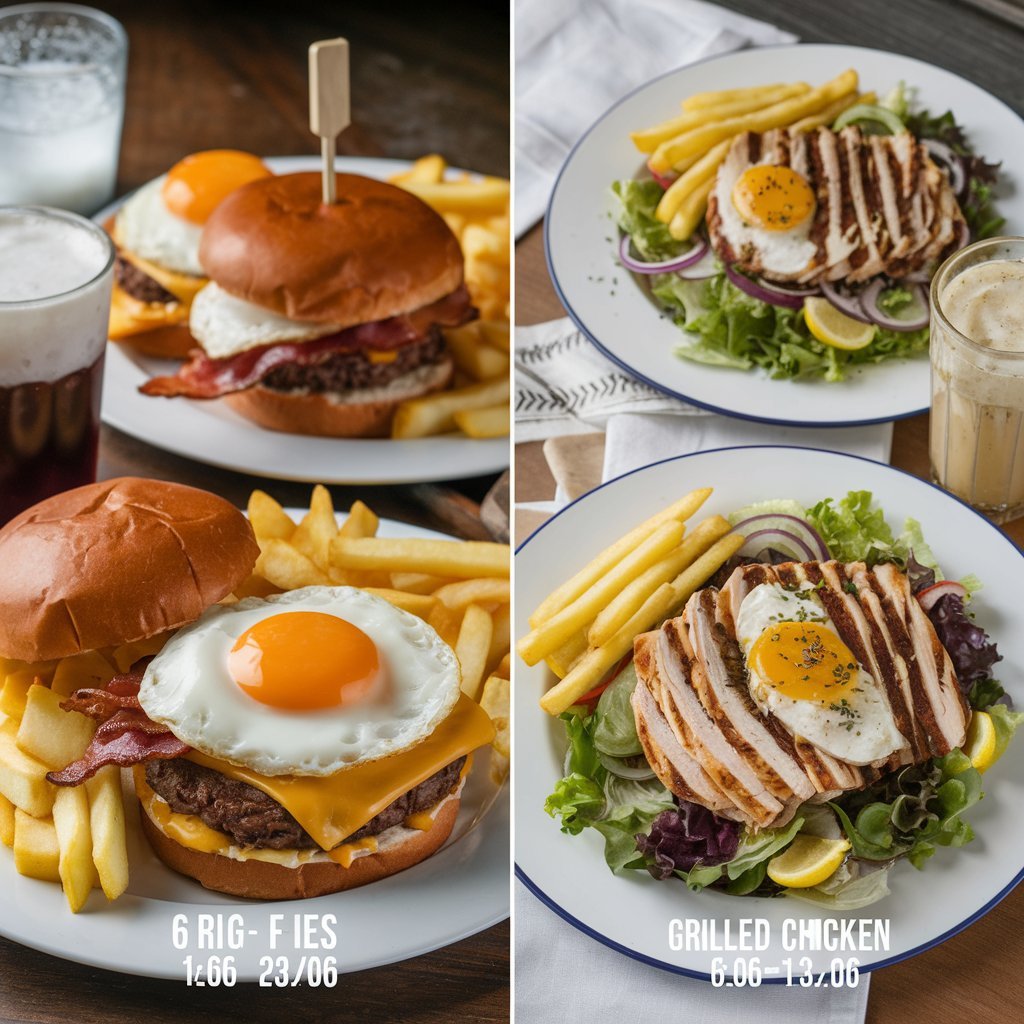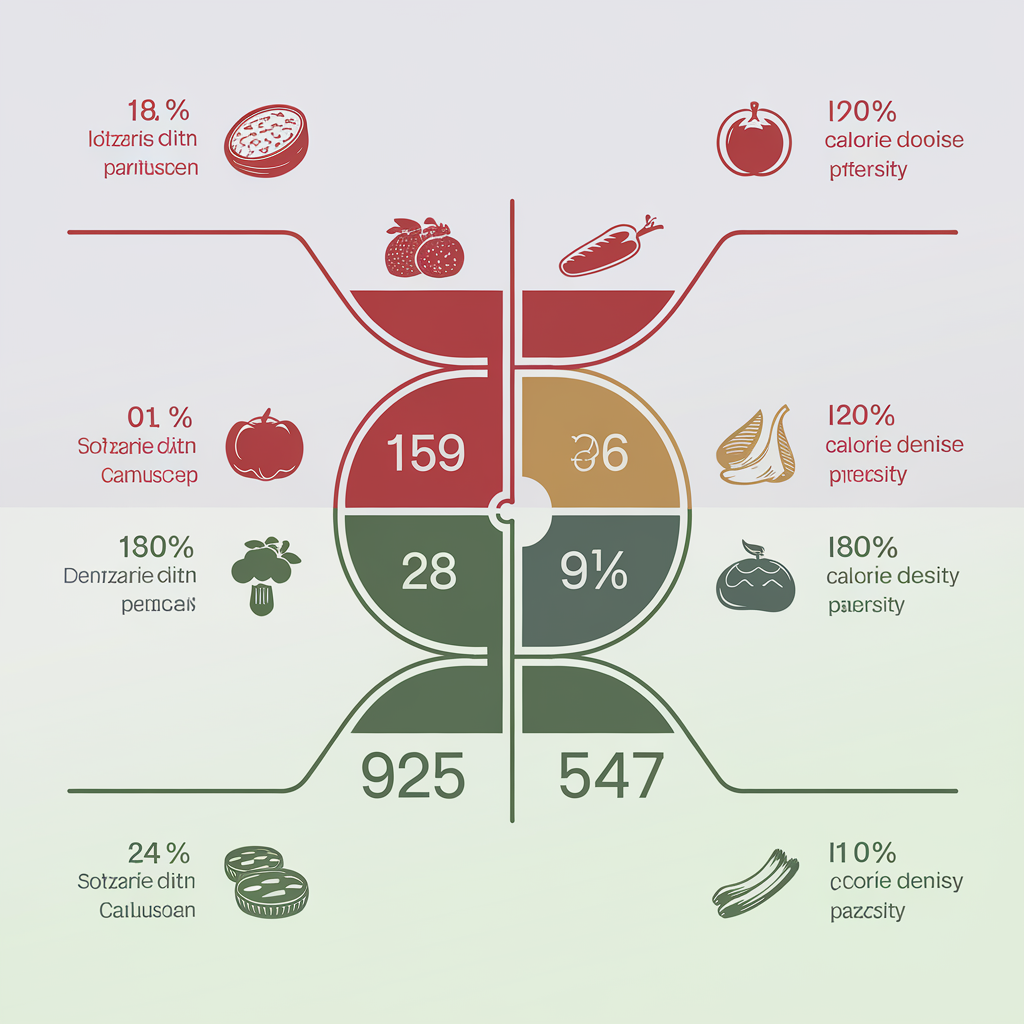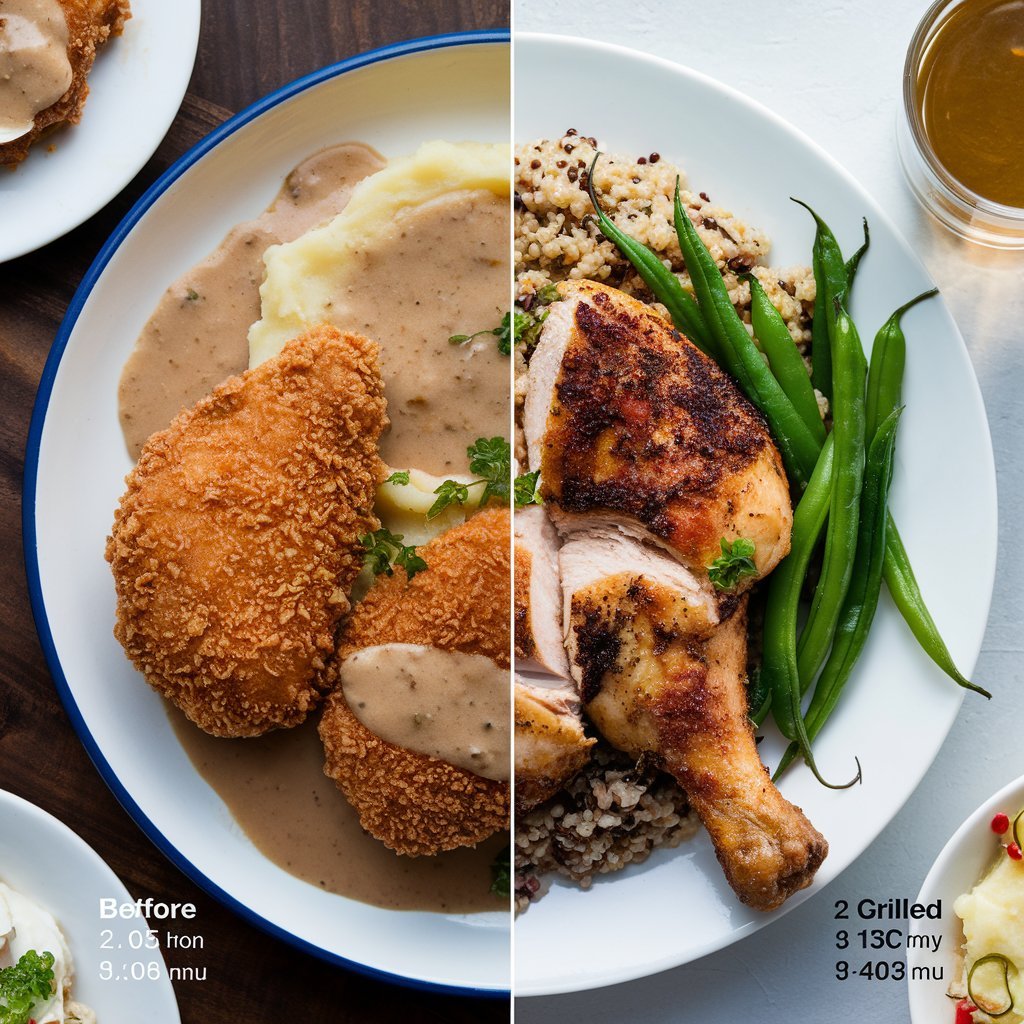
Managing calories remains the cornerstone of any effective weight loss program. Reducing your daily caloric intake doesn’t necessarily mean depriving yourself of culinary pleasures or subjecting yourself to a draconian diet. In 2025, nutritional approaches have evolved to allow intelligent reduction of calories while preserving meal satisfaction. This article will guide you through the most recent strategies to master your caloric consumption without compromising your enjoyment of eating.
Understanding Calories: The Fundamental Basis of Weight Loss in 2025
Calories represent the unit of measurement for energy contained in food. Effective management of caloric intake begins with understanding this essential concept. Every food we consume brings a certain number of calories to our body, which uses them as fuel to function.

What is a Calorie, and Why is it Crucial for Weight Loss?
A calorie is technically defined as the amount of energy needed to raise the temperature of one gram of water by one degree Celsius. In the nutritional context, we generally talk about kilocalories (kcal), although the term calorie is commonly used. Caloric intake management is fundamental because weight loss obeys a simple equation: burn more calories than you consume.
In 2025, new research confirms that creating a moderate caloric deficit remains the most reliable method for sustainable weight loss. Reducing 500 to 750 calories daily can lead to a healthy and progressive weight loss of 0.5 to 1 kg weekly.
Personalized Calculation of Caloric Needs: Beyond Standard Formulas
To optimize your caloric reduction, it’s essential to determine your specific energy needs. Caloric needs calculation tools have evolved considerably in 2025, now integrating factors such as:
- Basal metabolism, influenced by age, gender, and genetics
- Daily physical activity level
- Body composition, particularly muscle mass percentage
- Specific weight loss goals
- Particular medical conditions affecting metabolism
Modern caloric tracking applications use artificial intelligence to refine these calculations and offer personalized caloric recommendations that adapt to your progress.
10 Flavorful Strategies to Reduce Calories Without Sacrificing Pleasure
The caloric reduction can and should be compatible with gustatory pleasure. Here are the most effective approaches in 2025 for decreasing calorie intake while maintaining meal satisfaction.
1. Intelligent Food Substitutions: Reducing Calories with Tasty Alternatives
The first strategy to decrease caloric intake consists of replacing certain ingredients with less caloric but equally tasty alternatives:
- Replace thick creams with Greek yogurt (savings of 200 calories per cup)
- Use fruit purees instead of refined sugar in your pastries (30% reduction in sweet calories)
- Opt for enriched plant milk rather than whole milk (savings of 50 to 70 calories per glass)
- Try vegetable pasta instead of traditional pasta (75% reduction in calories)
These substitutions significantly reduce total caloric intake without compromising the texture or flavor of dishes.
2. Low-Calorie Cooking Techniques: Maximum Flavor, Minimum Calories
Preparation methods can considerably influence the final caloric content of a dish. The following techniques preserve flavors while limiting calories:
- Steaming preserves nutrients and flavors without adding calories
- Sautéing with an oil spray reduces caloric intake by 70% compared to frying
- Cooking en papillote concentrates aromas without requiring additional fats
- Marinades based on citrus and herbs bring flavor without superfluous calories
In 2025, new cooking appliances, such as the latest generation air fryers, will reduce up to 80% of fat-related calories while preserving the crispy texture that is so appreciated.
3. Caloric Density: The Key Concept for Eating More While Consuming Fewer Calories
Caloric density represents the number of calories per gram of food. This notion has become central in modern nutritional approaches of 2025:
- Foods with low caloric density allow consuming larger volumes for fewer calories
- Vegetables, with about 0.3 calories per gram, can be consumed in large quantities
- Water contained in foods increases their volume without adding calories
A plate composed mainly of foods with low caloric density allows one to visually and physically satisfy one’s appetite while reducing total caloric intake.
4. Mindful Eating: Reducing Calories Through Attentive Consumption
Research from 2025 confirms that eating mindfully can reduce caloric intake by 15 to 20% without additional effort:
- Prolonged chewing increases satisfaction and decreases the total amount of calories consumed
- Eliminating distractions during meals reduces unconscious caloric overconsumption
- Recognizing satiety signals helps avoid unnecessary calories ingested after satisfying energy needs
Practicing mindful eating represents a cost-free strategy to decrease your caloric consumption naturally.
5. Quality Proteins: Maximum Satisfaction for Optimal Caloric Control
In 2025, the importance of proteins in caloric management will be fully recognized. Proteins:
- Require more energy to be digested, reducing the net caloric impact
- Provide prolonged satiety, decreasing overall caloric intake throughout the day
- Preserve muscle mass during the period of caloric deficit
Integrating 25-30g of protein at each meal optimizes caloric management by naturally reducing snacking cravings and excesses.

How to Structure Your Meals for Effective and Flavorful Caloric Reduction
Good meal organization considerably facilitates calorie management. Here’s how to structure your diet to optimize caloric reduction without compromising satisfaction.
Strategic Meal Planning: Controlling Calories Through Anticipation
Preparation in advance remains one of the best strategies to master caloric intake:
- Planning meals for the week helps avoid impulsive choices, often more caloric
- Batch preparation facilitates portion control and, therefore, calories
- 2025 planning applications integrate precise caloric calculators
Good meal planning allows for a 20% to 30% reduction of weekly caloric intake by eliminating food decisions made due to hunger.
Spices and Aromatics: Boosting Taste Without Adding Calories
Strategic use of seasonings enriches the taste profile of dishes without increasing their caloric value:
- Spices like cumin, paprika, and cinnamon intensify flavors without bringing calories
- Fresh herbs add aromatic complexity for zero additional calories
- Flavored vinegar and citrus zests enhance dishes without caloric impact
In 2025, new spice combinations developed by nutritionist chefs allow compensation for caloric reduction with an increase in taste intensity.
Frequently Asked Questions About Calorie Reduction
Is it Possible to Reduce Calories Without Counting Each Caloric Intake?
Absolutely. Although precise tracking of calories is effective, more intuitive approaches can also work:
- Using smaller plates naturally reduces portion size and, therefore, calories
- The divided plate method (½ vegetables, ¼ proteins, ¼ starches) automatically controls caloric intake
- Intuitive eating, based on hunger and satiety signals, can naturally regulate calories
These methods allow for caloric reduction without the need for meticulous tracking.
What is the Minimum Recommended Amount of Calories in 2025?
The 2025 nutritional recommendations specify that caloric intake should never drop:
- Below 1200 calories per day for women
- Below 1500 calories per day for men
A too-severe caloric reduction can slow metabolism and compromise health. The goal is to create a moderate but sustainable caloric deficit.
How to Manage Sugar Cravings While Reducing Calories?
Sugar cravings can sabotage caloric reduction efforts. Modern strategies to manage them include:
- Using natural sweeteners like stevia or erythritol, which bring sweetness without calories
- Consuming whole fruits that satisfy sugar cravings with controlled caloric intake
- New formulations of low-caloric desserts available in 2025
These approaches satisfy taste needs while maintaining the caloric deficit necessary for weight loss.
2025 Technological Innovations for Caloric Tracking
The year 2025 has brought its share of innovations in the field of caloric management:
- Visual recognition applications that instantly analyze the caloric content of a dish by simple photo
- Connected watches capable of accurately estimating caloric expenditure thanks to multifactorial sensors
- Smart refrigerators that suggest recipes adapted to your caloric objectives based on their content
These technologies considerably facilitate the tracking and management of daily calories.
How to Maintain Caloric Reduction in the Long Term
The key to successful caloric management lies in its sustainability:
- The introduction of « caloric rest days, » where energy intake returns to balance, can facilitate long-term adherence
- Progressive adjustment of caloric objectives according to results avoids plateaus
- Food rotation prevents boredom while maintaining caloric control
A flexible approach to caloric reduction significantly increases the chances of long-term success.
Conclusion: Calorie Mastery, a Life Skill for 2025 and Beyond
Intelligent calorie management is much more than a simple diet—it’s a life skill that will allow you to maintain a healthy weight while savoring your meals. By integrating the knowledge and caloric reduction strategies presented in this article, you can create an energy deficit while preserving the pleasure of eating.
Remember that every small caloric reduction counts. Even minor adjustments, like saving 100 calories daily, can lead to significant long-term weight loss. The most effective approach remains the one you can sustainably maintain.
Call to Action: Take Control of Your Calories Today!
Are you ready to transform your relationship with calories and discover how flavorful food can support your weight goals? Start by applying one or two caloric reduction strategies from this article today, and observe how small changes in your approach to calories can lead to significant results in your weight loss journey.
Please share your experience of caloric management in the comments and join our community of people determined to master their nutrition in 2025!
« If you’re interested in other weight loss methods, check out this article for additional effective strategies.«
